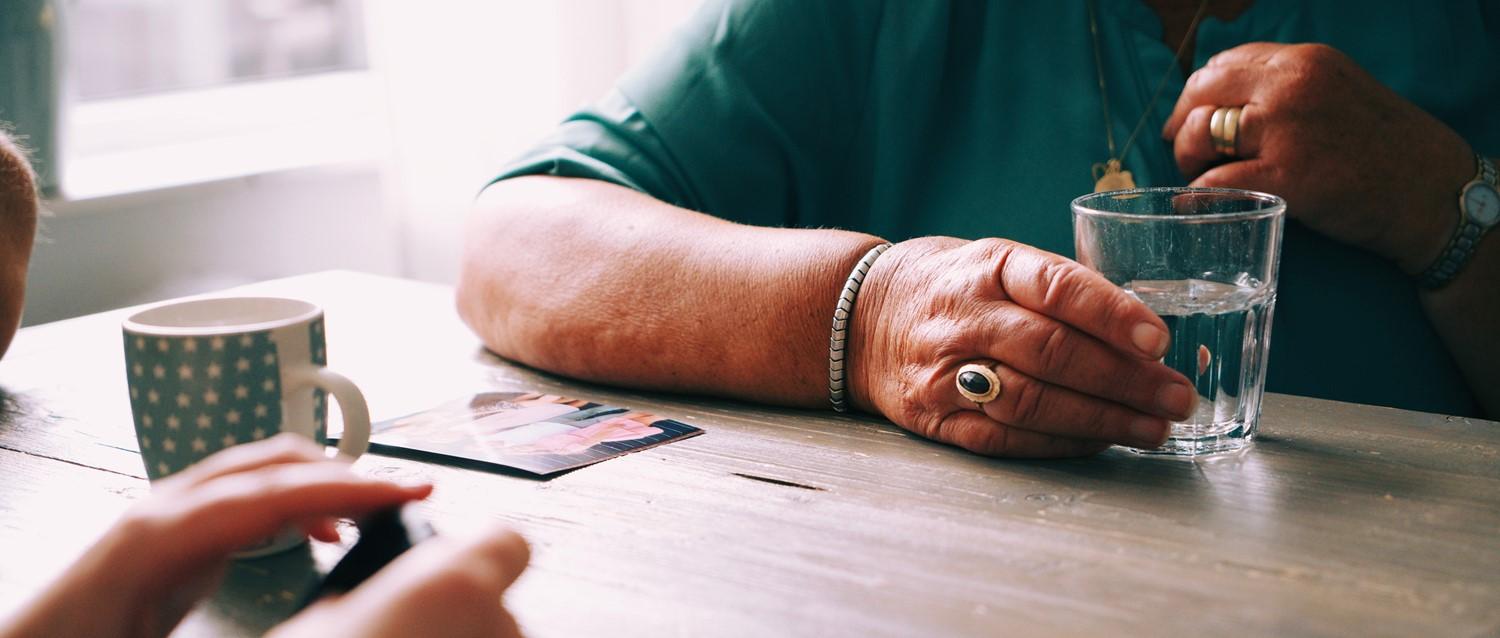
Can winter weather make joint pain worse?
Peer reviewed by Dr Sarah Jarvis MBE, FRCGPAuthored by Andrea DowneyOriginally published 26 Dec 2019
Meets Patient’s editorial guidelines
- DownloadDownload
- Share
- Language
- Discussion
When the weather gets colder, many people with joint and bone problems often feel like their condition gets worse, but does the weather have any impact on the severity of conditions like arthritis?
In this article:
Video picks for Joint health
Ever felt like your joint pain gets worse when the weather gets colder? You're not alone, millions of people who have arthritis and similar conditions often feel like their joints are stiffer when the temperature drops.
But is there any evidence to suggest that cold weather, or any type of weather, can affect our bones and joints? Dr Fiona Chikusu, clinical spokesperson for charity Versus Arthritis, and Jack March, Chews Health rheumatology clinical lead, explain.
Recent research from Manchester University, and funded by Versus Arthritis, found people living with the condition were 20% more likely to experience pain on days that are humid and windy. And it's not just arthritis that it affects. The study found those with pain conditions like fibromyalgia were also affected by the weather.
But what's the verdict on cold weather affecting joint pain? So far, there's no scientific evidence to suggest it does.
The evidence
"People who experience joint pain may feel it more in the cold, but the reason for this is not specifically known. It might simply be because the cold means people are less active which causes stiffness, and because of that stiffness people feel more pain," Dr Chikusu says.
"It has been suggested that if the atmospheric pressure drops and temperature becomes colder then the pressure inside people's joints that pushes on the nerves either increases or decreases, while others have suggested that cold weather increases the pressure on the joints, resulting in pain.
"The final theory considers the pain receptors and their responses to cold. When the temperature drops, it can make people's pain receptors a lot more sensitive, and because of this, they will feel more significant arthritis pain."
March says that it's important to remember that weather will have no impact on the severity of a person's arthritis, only the pain they may experience.
"Winter's lack of daylight and poorer weather conditions are associated with lower mood. It is also a stress on the body's nervous system to be cold as it has to try to keep itself up to temperature. These effects on the psychological and nervous systems likely have a much larger effect on pain levels than the humidity, low pressure or wind directly upon the joints," he adds.
How to manage the pain
Back to contentsThere are several steps a person can take to manage their pain, but it's important to remember that if pain worsens for longer than two weeks then a visit to the GP or pharmacist to get it checked is necessary.
"Wearing suitable clothing can help - thermals or layers of clothing work better at trapping the heat than thicker clothes and wearing thicker socks or two pairs not only helps to keep your feet warm but also provides extra cushioning under your soles," Chikusu says.
"Hot-water bottles, electric blankets and taking a warm bath or shower will also help to ease stiff and painful joints."
Keeping the house warm is also a good idea. The NHS recommends that you should heat your home to at least 18°C if you have reduced mobility, are aged 65 or over or have a health condition such as heart or lung disease.
March also suggests using mild painkillers such as paracetamol or ibuprofen. But you should always consult a pharmacist before taking them for an extended period of time.
"Keeping active, getting plenty of sleep, reducing excess body fat, especially abdominal, and not smoking also help to keep the body's resting level of inflammation at a lower level. These factors are more strongly associated with higher levels of pain," he says.
Continue reading below
Keeping active
Back to contentsOn the subject of keeping active, exercise can be a useful tool in keeping the joints mobile and comfortable.
It always seems to be the go-to advice for a healthy lifestyle, but keeping active really can work wonders for your body and mind - including pain management. Just make sure to choose an activity that's not going to put too much pressure on your bones.
"Exercise will improve your circulation and help to keep you warmer. The weather might put you off doing long outdoor walks but there are many indoor options for low-impact, weight-bearing exercises, like doing a yoga class," Chikusu adds.
"Simple stretching exercises, like stretching your arms in the air, keep your joints moving properly. They are designed to help ease aches and pains by stretching the joints and muscles in your body. Strengthening exercises help you to strengthen your muscles so they can support your joints. You may want to try Pilates to help strengthen muscles and improve posture.
"Low-impact fitness classes like t'ai chi and yoga are also good options for people with arthritis or joint pain, and you can do these indoors during the winter."
Another exercise that's good for the joints, especially if you're in severe pain, is swimming or pool-based exercises, March adds. That's because the water takes the weight of your body and allows you to move with less pressure on your joints.
"If the pain is particularly severe then pool-based exercise can be a great way of getting the joints moving and exercising while reducing the force through the area.
"If you have a specific problem such as restricted range of motion or muscle weakness then consulting a physiotherapist is a great option to get some individualised advice."
The NHS recommends we get 30 minutes of exercise five days a week, but if that's too painful to begin with try breaking it down into sessions lasting 5-10 minutes. Any amount of movement to keep your joints supple will be beneficial.
Patient picks for Joint health

Bones, joints and muscles
What is hypermobility syndrome?
Having supple joints with a wide range of motion allows the body to move freely, and for some people - gymnasts, athletes and dancers, for example - this can be an advantage. But being super flexible can have its drawbacks, too. When you're hypermobile, your joints move easily beyond the normal range. Over time, this can cause pain and in the very worst cases, dislocation or long-term damage to the joint. It can also be linked to a range of issues in other parts of the body.
by Allie Anderson

Bones, joints and muscles
Joint pain - is it bursitis?
Bursitis is a common cause of painful, swollen, and tender joints. It's sometimes caused by repeated movements that place pressure on your joints - like kneeling or elbow-leaning - and can affect different parts of your body.
by Dr Sarah Jarvis MBE, FRCGP
Continue reading below
Article history
The information on this page is peer reviewed by qualified clinicians.
26 Dec 2019 | Originally published
Authored by:
Andrea Downey
Peer reviewed by
Dr Sarah Jarvis MBE, FRCGP

Ask, share, connect.
Browse discussions, ask questions, and share experiences across hundreds of health topics.

Feeling unwell?
Assess your symptoms online for free
Sign up to the Patient newsletter
Your weekly dose of clear, trustworthy health advice - written to help you feel informed, confident and in control.
By subscribing you accept our Privacy Policy. You can unsubscribe at any time. We never sell your data.